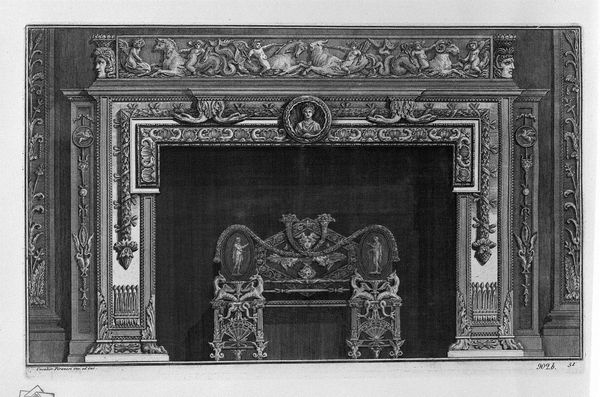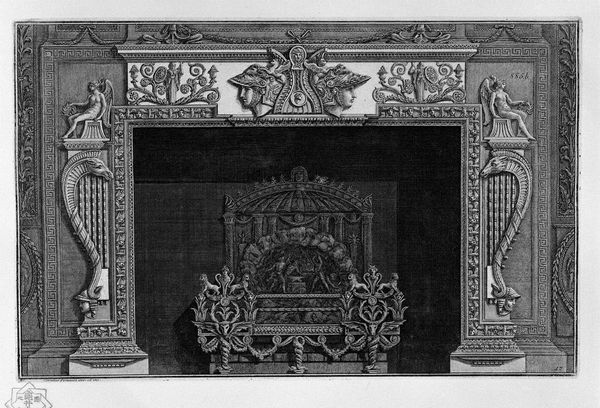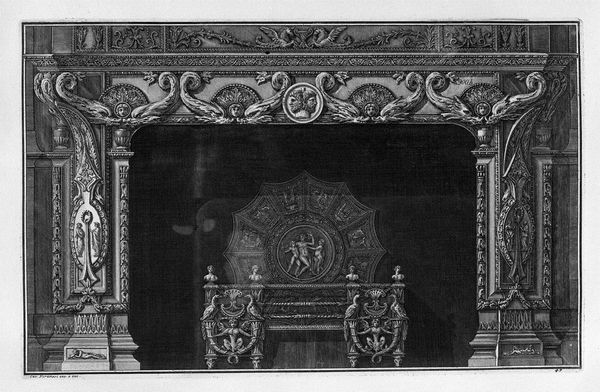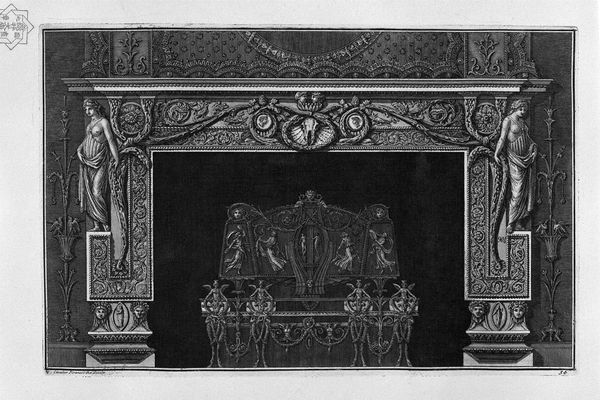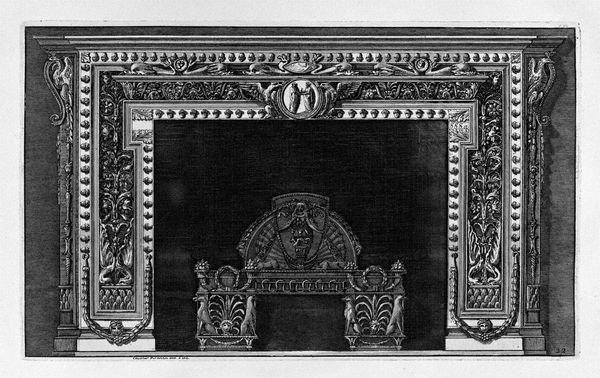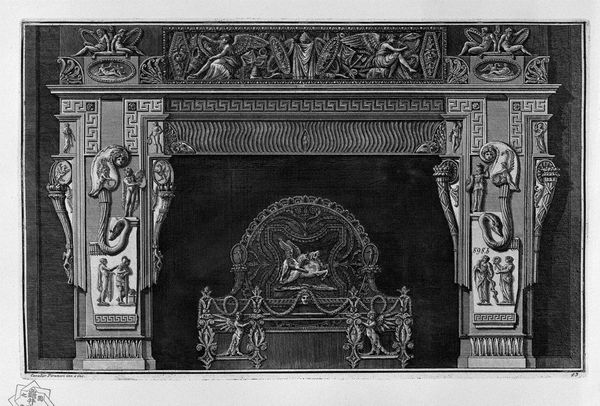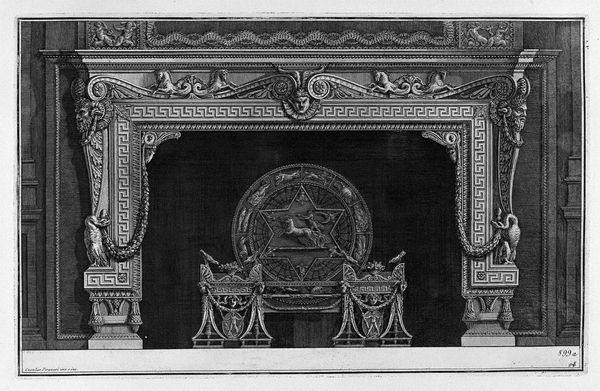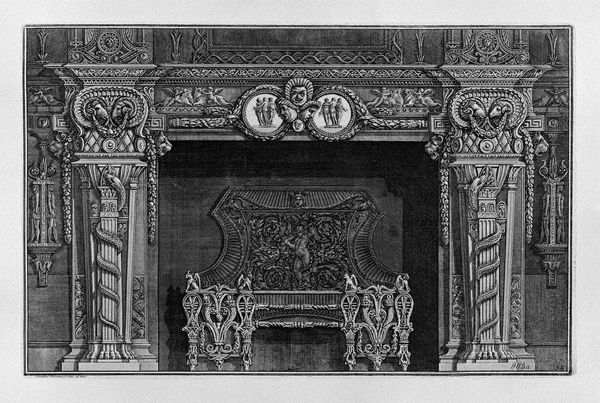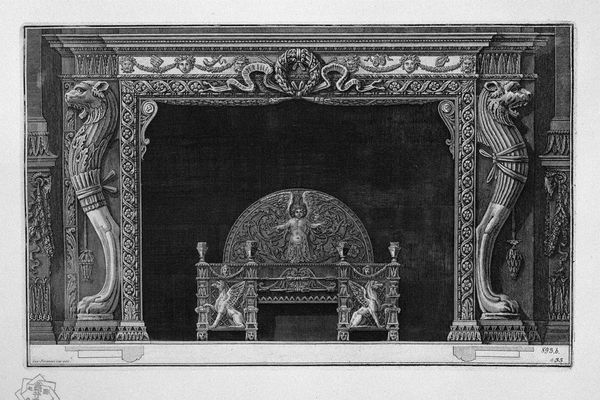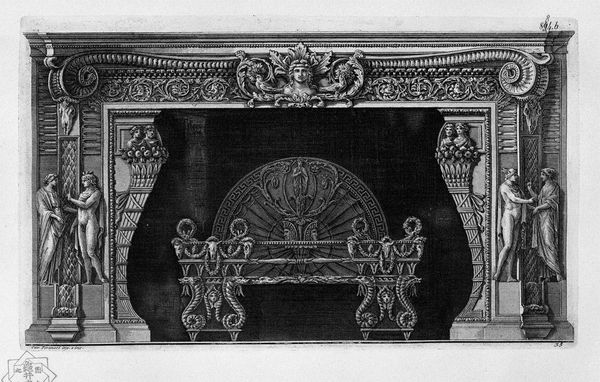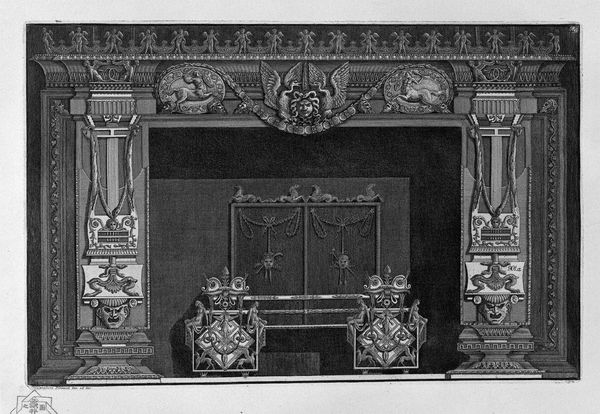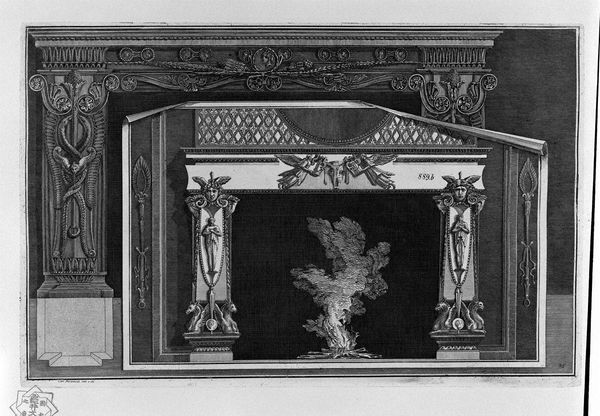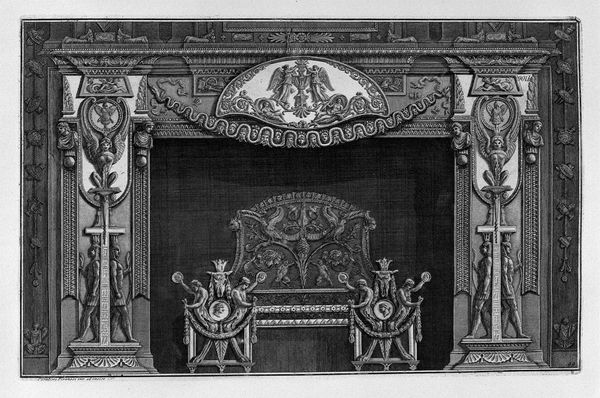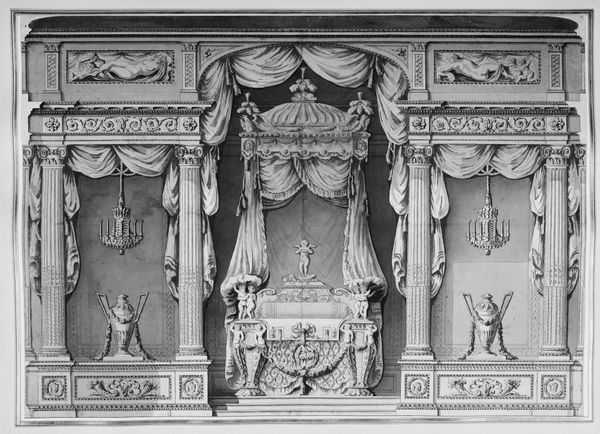
drawing, carving, sculpture, engraving, architecture
#
drawing
#
neoclacissism
#
carving
#
sculpture
#
holy-places
#
form
#
geometric
#
classicism
#
sculpture
#
arch
#
carved
#
line
#
history-painting
#
engraving
#
architecture
#
statue
Copyright: Public domain
Giovanni Battista Piranesi created this etching of a fireplace design, steeped in the architectural aspirations of 18th-century Rome. Piranesi lived during a time of intense archaeological discovery, with the excavations of Pompeii and Herculaneum fueling a fascination with the classical world. The fireplace is a theatrical display of power, embellished with masks, mythological figures, and elaborate ornamentation. Note how the female figures incorporated into the design serve as both structural support and decorative elements, embodying classical ideals of beauty and strength, while also reflecting the limited roles assigned to women in public life. Consider too the masks: are they dramatic representations of identity, or ominous symbols of the hidden, darker aspects of human nature? Piranesi's vision transcends mere functionality, instead, he gives us an opulent fantasy. What does this tell us about the cultural values placed on grandeur, heritage, and the performance of identity during the Enlightenment?
Comments
No comments
Be the first to comment and join the conversation on the ultimate creative platform.
